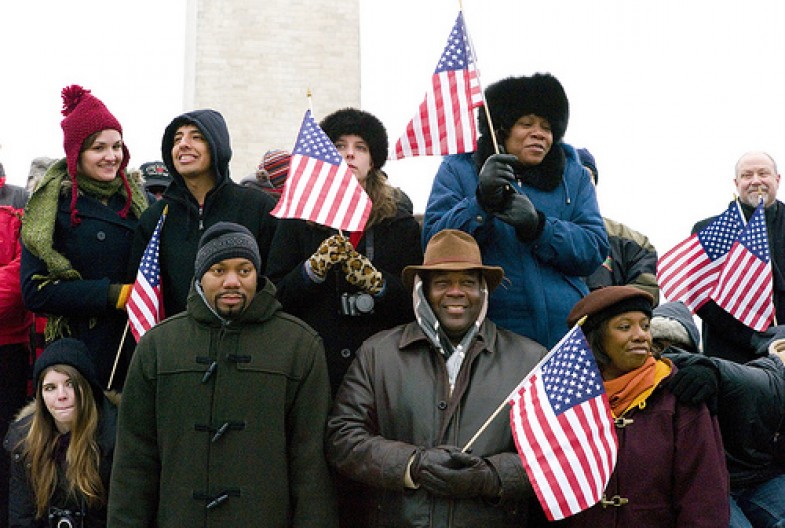*Universal health care: This would include natural health treatments and psychological therapies, both of which save money over the long haul by preventing serious medical conditions.
*A fair electoral system: How about a voting system in which the guy who gets the most votes wins? Even better would be proportional representation (common outside the English-speaking world), which allows third and fourth parties to bring fresh ideas into the political debate without becoming spoilers.
*Full employment: Any society that glorifies work as much as we do ought to offer every citizen the chance for a worthwhile job. Even in a recession, there are slums to fix up, trees to plant, and the unfortunate to care for.
*Far more federal spending on schools than on the military: Education is a better national security investment than weapons and warriors. The popular T-shirt says it all: “It will be a great day when our schools get all the money they need and the Air Force has to hold a bake sale to buy a bomber.“
*A 6-to-1 ratio between the highest-and lowest-paid employees in any enterprise: This might have the added benefit of coaxing some of our more greedy and ostentatious billionaires to relocate in the Cayman Islands.
*Four weeks paid vacation for all: A movement is already under way to give Americans the same kind of free time that Europeans, Australians, and the Japanese enjoy.
*A hummable national anthem: Ours isn’t so bad for an old battle poem plastered atop an English beer hall tune, but it’s time for an anthem more people are willing to sing. Maybe “This Land Is Your Land” or “All You Need Is Love.“
*A strongly unionized workforce: From weekends off to civil rights legislation, labor unions have been the sparkplug of significant social improvements. The right-wing drift of recent decades can be attributed more to the decline of labor’s power than to the fading of 1960s radicalism.
* Natural and historic preservation: More parks, wilderness areas, wildlife refuges, historic districts, and generous tax credits for saving scenic landscapes and landmark buildings.
*Unstinting support for the arts, humanities, and basic science: Think of tango festivals, touring comedy revues, cool museums (Gloria Steinem’s girlhood home in Toledo?), and new revelations about dinosaurs and dogwood blossoms.
*Topflight public broadcasting free of corporate purse strings: Imagine great investigative reporting, live poetry slams and salsa shows, original dramas by emerging literary talents, and humor of all varieties. Like the best of BBC, but in the many accents of America.
*Diversity. Character. Color. Charm. Scrap the melting pot and grab a stew pan so we can savor all of America’s spicy flavors. Let West Virginia celebrate its Appalachian splendor, Detroit its African-American and Arab-American heritage, Boulder (and Halifax) its burgeoning Buddhist sensibility, and Gilroy, California, its famous garlic.
*Greater global awareness: We give shamefully small amounts of nonmilitary aid to poor nations around the planet even as U.S. corporations exploit their people and environment. Adding insult to injury, many Americans show little interest in anything happening beyond our borders. We’re losers in this situation too, missing out on great ideas from other cultures that could help solve some of our own problems here at home.








